Major Power Relations
Your Present Location: PROGRAMS> Major Power Relations-
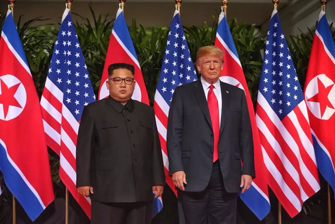
Wang Peng: SK not mauled by failure of Hanoi summit
The high-profile summit between North Korean leader Kim Jong-un and US President Donald Trump ended without an agreement in Hanoi, Vietnam. Some observers believe that South Korea has been the biggest loser as the Hanoi summit fell apart. In their opinion, South Korean President Moon Jae-in had been eyeing major diplomatic achievements from the summit. But the Moon administration, observers say, was disappointed.
2019-03-06 -
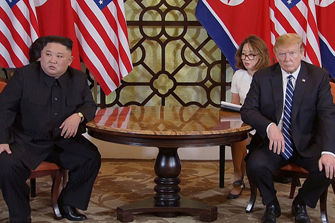
Wang Peng: China to enhance mutual trust between DPRK and US
The 2019 DPRK-U.S. Hanoi Summit was a decisive two-day meeting between DPRK Chairman Kim Jong Un and U.S. President Donald Trump. Media around the world had great anticipation that the two equally strong leaders may find a final solution and practical guideline for the chronic security tensions between the two nations.
2019-03-04 -
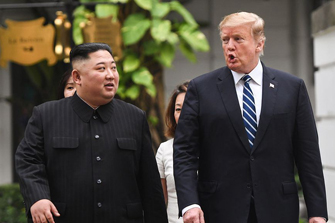
What the Hanoi result means for the world
U.S. President Donald Trump just met with Democratic People's Republic of Korea (DPRK) leader Kim Jong Un in Hanoi, Vietnam on February 27. Unlike the optimistic forecast, the summit failed to reach an agreement.
2019-03-01 -
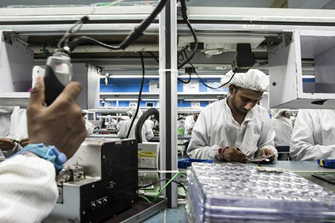
India's slow industrialization shows failure to grasp globalization
While there have been discussions surrounding how India's industrialization will affect China in the future, one realistic question currently faced by India is whether the country can achieve industrialization at all.
2019-03-01 -
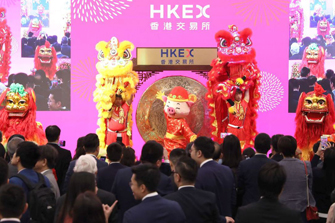
Significant boost imminent for financial ties in key region
Financial ties among Guangdong, Hong Kong and Macao will be further strengthened through promoting cross-area trading connections and financial innovation, said analysts, after the central authorities issued a comprehensive development plan for the Greater Bay Area.
2019-02-28 -
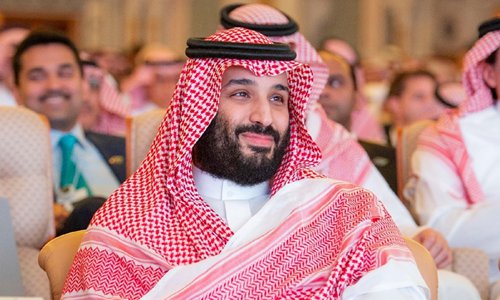
Middle East powers seek ties with China
Saudi Arabia Crown Prince Mohammed bin Salman bin Abdulaziz Al Saud is scheduled to visit China from Thursday to Friday after his trip to Pakistan and India, in a sign that Chinese observers said shows the kingdom is seeking to diversify its diplomacy rather than merely rely on the US.
2019-02-27 -
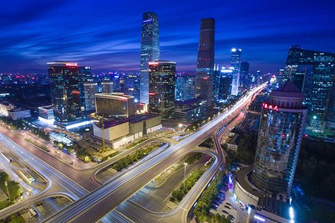
Liu Ying: Economy can resist external pressure
The International Monetary Fund recently lowered its global economic growth outlook amid international trade conflicts. Combined with this, the economic structural adjustment in China has created new and some difficult challenges for the Chinese economy.
2019-02-27 -

Tariff may be temporary but dispute is not
After several rounds of talks, the US and China seem to be heading toward a deal over the thorny issue of tariffs. US President Donald Trump said Monday that he will hold a summit with Chinese President Xi Jinping to conclude an agreement to end the year-long standoff. What does it mean? How will bilateral relations develop in the future? Three experts shared their views with the Global Times.
2019-02-26 -

Wang Yiwei: Europe must choose wisely on Huawei for digital future
The UK's National Cyber Security Centre recently concluded that any risk posed by using Huawei 5G networks can be managed, according to unnamed sources cited by the Financial Times. Some Western media have said that this shows the UK and other European countries haven't followed the US on the so-called outright ban on Huawei's 5G equipment. Instead, they are cautiously taking a relatively balanced view based on their own interests. The UK is part of the intelligence-sharing group known as Five Eyes, and its approach on the issue is likely to set an example for other European countries to address security concerns involving Huawei and to purchase Huawei's 5G equipment.
2019-02-26 -
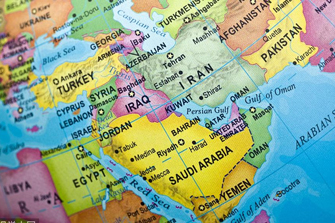
China's ties with Iran and Saudi Arabia are fair and square
Saudi Arabian Crown Prince Mohammed bin Salman paid a two-day visit to China from Thursday to Friday, during which the two sides signed a series of deals on political cooperation and investment in energy and other sectors. Bin Salman met with Chinese President Xi Jinping on Friday, just three days after Iranian Parliament Speaker Ali Larijani's visit with Xi.
2019-02-25 -
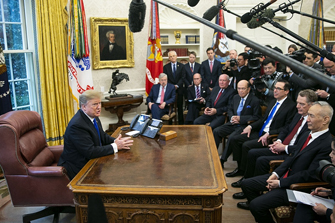
What’s behind extended Sino-U.S. trade talks?
Chinese negotiators will extend their stay in Washington by two days in an effort to end the seven-month trade war. “The fact that they [Chinese representatives] are willing to stay for quite a bit longer… means something,” U.S. President Donald Trump reportedly said.
2019-02-25 -
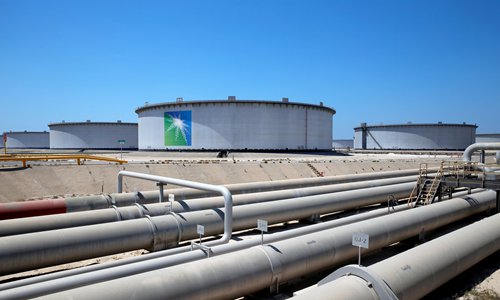
Energy, third-party market cooperation with China highlight Saudi crown prince's visit
Saudi Arabian Crown Prince Mohammed bin Salman Al Saud's two-day visit to China scheduled to start on Thursday is expected to boost bilateral trade and economic relations, with joint cooperation in third-party markets and yuan-denominated crude trading expected to be highlighted.
2019-02-22 -
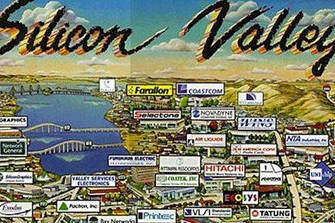
Silicon Valley to Be Left Without Chinese Money?
According to Zhu Min, the desire of Americans to squeeze Huawei out of the market, as well as new legislative initiatives to control investments in the technology sector, will reduce to zero the presence of Chinese venture capital in the United States.
2019-02-22 -
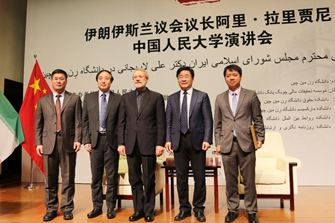
Wang Peng: China-Iran to deepen strategic trust and cultural exchanges
At this strategically meaningful moment, a luxury high-ranking delegation came to Beijing from Teheran directly. This 40-top-official team includes Iranian Islamic Parliamentary Speaker Dr. Ali Larijani, Foreign Minister Mohammad Javad Zarif and a dozen of ministers and vice-ministers in energy, petroleum, transportation, finance, the CEO of Iranian central bank, and so forth.
2019-02-22 -
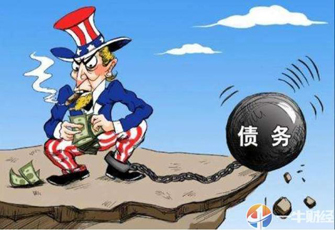
Wang Wen: The US can’t let debt cast shadow on its economy
In the long run, debt expansion propels favorable policies that stimulate the economy. The fiscal deficit is a persistent problem with a protracted history. Since former president Ronald Regan, US presidents have all adopted expansive fiscal policy. The US government has to borrow new debt to pay back the old, creating rollover risks. The country's low savings and high consumption model has also driven the US to keep large amounts of debt.
2019-02-21 -
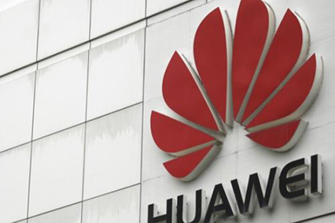
Ding Gang: Huawei’s uphill battle in going global
Whether Huawei is a Chinese company or a global corporation is a question worth pondering. Started as a Chinese company, Huawei aimed to go global, but never lost its national identity. Being global means the company's investments, technology, human resources, products and services as well as profits are derived from the international market.
2019-02-21 -
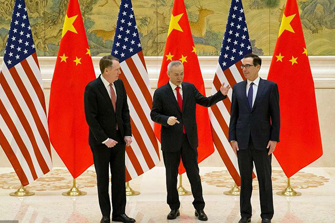
Liu Zhiqin: Countries need to work together to 'CURE' world illnesses
The recent trade talks between China and the United States ended on February 15 in Beijing. The outcome of this round of negotiations has attracted much attention from the international business community. As expected by most experts, the talk yielded a positive result. And it was announced that further talks will be held soon.
2019-02-21 -
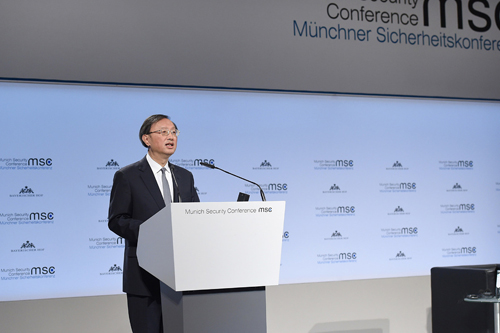
In Munich, China shows positive role in global politics
If the Munich Security Conference acts as a barometer to gauge world politics, this year has shown quite contradictory trends: confrontation and cooperation, and unilateralism and multilateralism.
2019-02-20 -
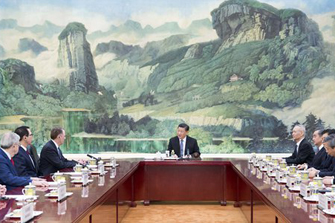
US shows ‘greater pragmatism’ after trade war’s impact
Chinese President Xi Jinping met with top US trade officials on Friday, after the latest round of China-US trade negotiations concluded in Beijing, offering support from China's top leadership for the ongoing talks aimed at resolving the trade war between the world's two largest economies.
2019-02-20 -
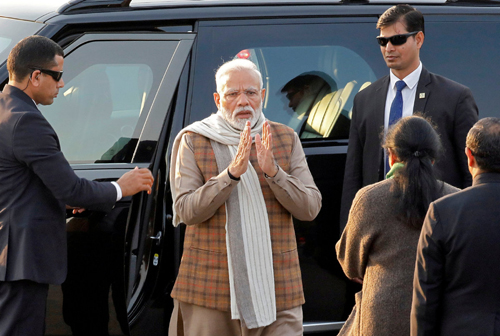
Lin Minwang: Indian govt trying to find a winning position for election
The Indian Ministry of External Affairs has said the cancellation of some Belt and Road projects in Pakistan and Nepal is testimony to some unacceptable conditions of the initiative proposed by China.
2019-02-20
























































































 京公网安备 11010802037854号
京公网安备 11010802037854号





